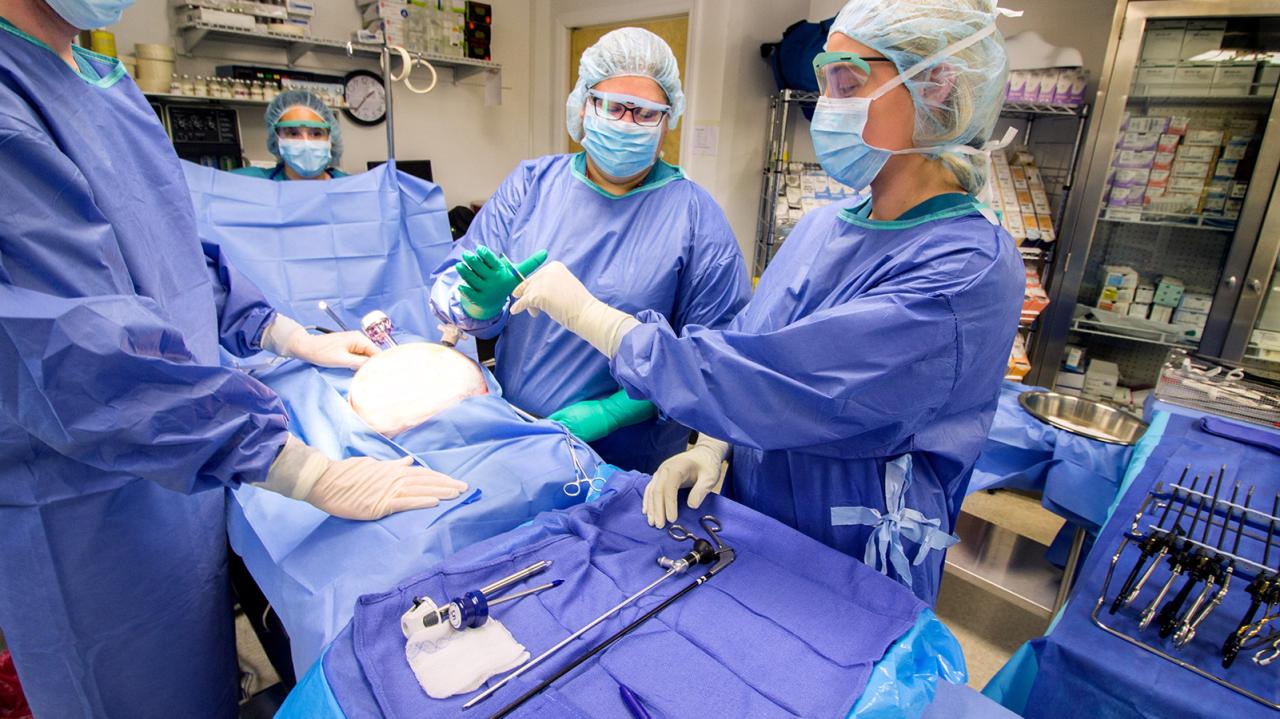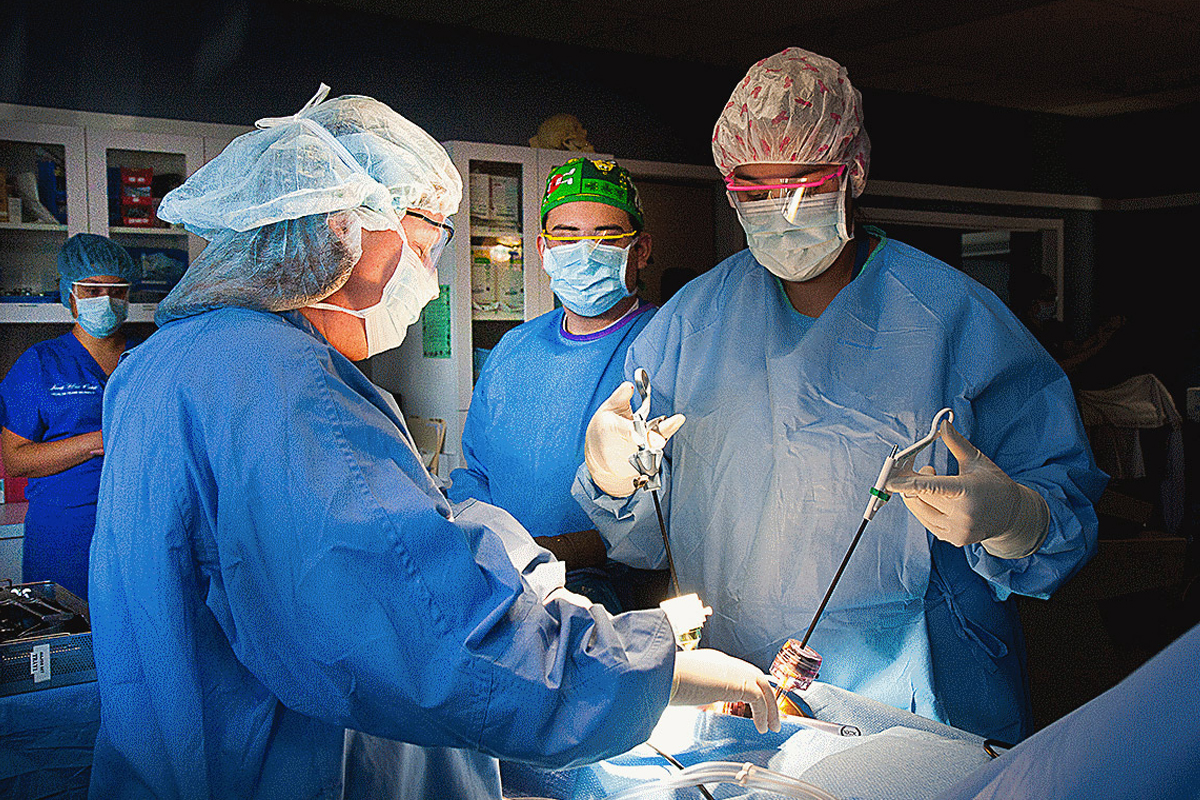Surgical tech programs near me with financial aid options are a fantastic way to launch a rewarding career in healthcare. This guide helps you find programs in your area that offer financial assistance, making your dream of becoming a surgical technologist more attainable. We’ll cover everything from program location and accreditation to financial aid options, curriculum details, and career prospects.
Let’s explore your options and find the perfect fit for your future.
This comprehensive guide will walk you through the process of finding and applying to surgical technology programs, ensuring you have all the necessary information to make informed decisions. We’ll cover crucial aspects like program accreditation, curriculum specifics, and the various financial aid options available to help you fund your education. Ultimately, the goal is to empower you to confidently pursue your career goals in surgical technology.
Finding Surgical Tech Programs Near You

So you’re interested in becoming a surgical technologist? That’s great! This guide will help you find surgical technology programs near you, understand your financial aid options, and prepare for a successful career.
Geographic Scope and Program Availability
To find programs, we need a zip code. Once you provide that, we can search for accredited surgical technology programs within a 50-mile radius. The results will be displayed in a table below. Note that program availability can change, so it’s always best to contact the programs directly for the most up-to-date information.
| Program Name | Location | Contact Information | Website | Accreditation Status |
|---|---|---|---|---|
| Example Program 1 | Anytown, CA 91234 | (555) 123-4567, [email protected] | www.exampleprogram.edu | Accredited by CAAHEP |
| Example Program 2 | Springfield, IL 62704 | (217) 555-1212, [email protected] | www.exampleprogram2.edu | Accredited by ABHES |
Financial Aid Options Exploration, Surgical tech programs near me with financial aid options
Funding your surgical technology education shouldn’t be a barrier. Several financial aid options are available, including grants, scholarships, loans, and payment plans. Each option has its own application process and eligibility requirements.
Thinking about becoming a surgical tech? Lots of programs offer financial aid, which can really help with tuition costs. You might even get a little extra cash to help with expenses while you study, especially if you’re eligible for benefits like the Special £25 Cold Weather Payments set to enter bank accounts in your area.
Check out local community colleges and vocational schools to find surgical tech programs near you that offer financial aid packages – it could be the perfect way to launch your new career!
| Aid Type | Eligibility Requirements | Application Process | Typical Deadlines |
|---|---|---|---|
| Grants | Financial need, academic merit, specific program requirements | Complete a FAFSA (Free Application for Federal Student Aid) and program-specific applications. | Varies by program and grant provider, often early spring for the following academic year. |
| Scholarships | Academic achievement, community involvement, specific program requirements. | Submit applications through the program or external scholarship organizations. | Varies widely, check individual scholarship websites. |
| Loans | Credit history (for private loans), enrollment in an eligible program. | Apply through federal student loan programs or private lenders. | Deadlines vary depending on the lender and program. |
| Payment Plans | Enrollment in the program | Work directly with the program’s financial aid office. | Typically set by the program at the start of the semester or year. |
Program Curriculum and Structure

Surgical technology programs typically include a combination of classroom instruction, laboratory practice, and clinical rotations. The curriculum prepares students for the demands of the operating room.
- Anatomy and Physiology
- Surgical Procedures and Techniques
- Sterile Technique and Asepsis
- Surgical Instrumentation
- Medical Terminology
- Patient Care and Safety
- Clinical Rotations (various surgical specialties)
Hands-on training might involve practicing instrument identification and use, setting up sterile fields, and participating in simulated surgical scenarios using mannequins or virtual reality technology. Clinical rotations provide invaluable real-world experience in operating rooms.
Okay, so you’re looking into surgical tech programs near you and need help with financial aid? That’s smart! Once you’re all set, maybe you’ll want to start a podcast about your experiences, and that’s where checking out resources like finding the right AI voice generator for podcasting comes in handy. A good AI voice can make your podcast really professional.
Back to those surgical tech programs – remember to explore all your financial aid options thoroughly!
Career Outlook and Salary Expectations

The job outlook for surgical technologists is generally positive, with increasing demand due to an aging population and advancements in surgical techniques. Salary varies based on experience, location, and employer.
Illustrative Salary Range (National Average): $45,000 – $65,000 per year. This is a general range, and actual salaries can vary significantly.
Career Advancement: Surgical technologists can advance to lead surgical technologist roles, specialized surgical areas, or management positions within healthcare facilities. Further education, such as pursuing a bachelor’s degree, may enhance career opportunities.
Factors influencing salary include geographic location (higher salaries in major metropolitan areas), experience level (higher salaries with more years of experience), and certifications (additional certifications can lead to higher pay).
Program Admission Requirements and Application Process
Admission requirements vary by program, but common elements include a high school diploma or GED, a minimum GPA (often 2.5 or higher), and sometimes prerequisite courses in science or healthcare. Some programs may require an entrance exam (like the TEAS).
Looking for surgical tech programs near me with financial aid? Finding the right funding can be tricky, but it’s worth exploring all your options. If those plans change, consider a backup, like checking out some great IT courses that offer flexible schedules and career paths. Then, you can refocus your search on surgical tech programs near me with financial aid options, knowing you have a solid Plan B.
The application process typically involves submitting an application form, transcripts, letters of recommendation, and possibly a personal essay. Meeting deadlines is crucial. A strong application demonstrates your commitment and preparedness for the program.
Successful applicants often highlight relevant experience (e.g., volunteer work in healthcare), strong academic records, and compelling personal statements explaining their passion for the field.
Student Support Services and Resources
Many programs offer comprehensive support services to help students succeed. These resources can make a significant difference in your educational journey.
- Academic Advising
- Career Counseling
- Tutoring Services
- Financial Aid Assistance
- Access to online learning resources
- Mentorship programs
Financial resources, such as budgeting workshops and information on scholarships and grants, are commonly available. The programs aim to equip students with the tools and support needed for both academic and professional success.
Program Accreditation and Licensing Information
Accreditation ensures that the program meets specific educational standards. Accreditation is vital for securing employment and obtaining licensure. Licensure is a legal requirement for practicing as a surgical technologist in most states.
The process of obtaining licensure generally involves graduating from an accredited program, passing a national certification exam (e.g., CST exam from NBSTSA), and applying for state licensure. Specific requirements vary by state.
Example Accrediting Bodies: Commission on Accreditation of Allied Health Education Programs (CAAHEP), Accrediting Bureau of Health Education Schools (ABHES)
Example Licensing Boards: State-specific boards of medical examiners or licensing agencies for healthcare professionals.
Last Recap: Surgical Tech Programs Near Me With Financial Aid Options
Becoming a surgical technologist is a challenging but incredibly rewarding career path. By carefully considering the program options Artikeld in this guide, including location, financial aid, and curriculum, you can confidently choose a program that aligns with your needs and goals. Remember to thoroughly research each program and utilize available resources to secure the financial support you need. Your future in surgical technology awaits – start exploring your options today!
Question & Answer Hub
What is the average salary for a surgical technologist?
Salaries vary by location and experience but generally range from $45,000 to $70,000 per year.
How long does it take to complete a surgical technology program?
Most programs take around 1-2 years to complete.
Are there online surgical technology programs?
While some online components might be available, most programs require significant hands-on clinical experience, making fully online programs rare.
What is the job outlook for surgical technologists?
The job outlook is generally positive due to increasing demand in the healthcare industry.
What kind of certifications are available after graduation?
The Certified Surgical Technologist (CST) credential is a widely recognized and valuable certification.
